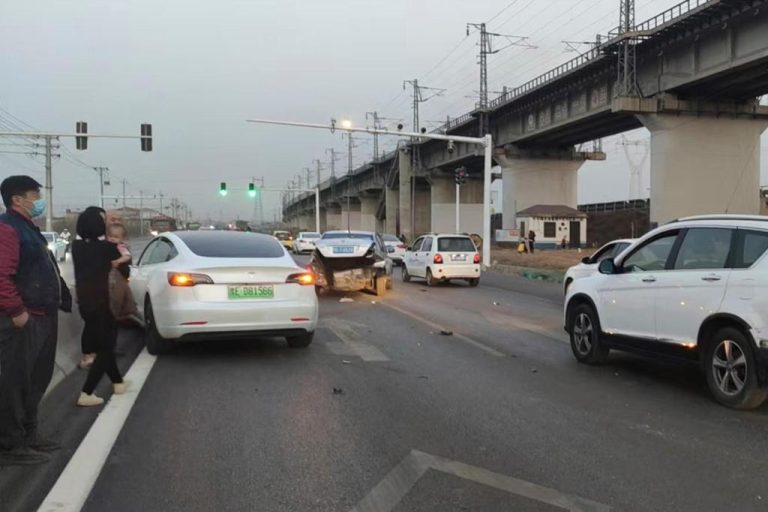
Two years ago, William Schuck crashed his car where Interstate 8 meets Sunset Cliffs Boulevard. San Diego police found a ghost gun and drugs in his possession and arrested him on suspicion of driving under the influence.
Six days after Schuck was booked into the county’s Central Jail, he was found slumped in his cell and unresponsive. He died despite the efforts of sheriff’s deputies, jail medical staff and paramedics who were called to the scene.
The medical examiner said later the 22-year-old had died with cocaine and ecstasy in his system. Now, an independent investigation by the county Citizens’ Law Enforcement Review Board, or CLERB, has found that Schuck obtained the drugs that killed him inside the jail.
The review board also found that deputies failed to provide Schuck access to a shower or even a mattress or sheets and towels during his week in custody and did not summon medical help when he appeared in distress.
“During this investigation, and in review of jail surveillance video recordings and other evidence, it was noted that Schuck was not afforded the opportunity to shower or bathe,” investigators said in the report that will be considered by the review board Tuesday.
Schuck, who went by his middle name, Hayden, spent most of his time in a holding cell to protect people in jail from COVID-19, they said.
“The court holding cells are not considered housing cells,” the report said. “However, that was where IPs (incarcerated persons) were placed for days while they completed their quarantine process.”
The CLERB report comes as the board’s executive officer Paul Parker has stepped up criticism of Sheriff Kelly Martinez, who has refused to implement recommendations that the department body-scan deputies arriving to work as a way to help keep drugs out of county jails.
The Sheriff’s Department did not immediately respond to a request for comment on the independent findings.
But the sheriff and her command staff have said they have made a number of changes in recent months designed to prevent smuggling inside county jails, including adding drug-sniffing dogs to some facilities and revamping the jails’ mail practices.
Nonetheless, Martinez has declined suggestions to scan deputies issued by the state auditor, the county grand jury and twice by the review board. Parker plans to ask the civilian oversight panel to issue the recommendation for a third time at Tuesday’s meeting.
According to the Sheriff’s Department, Schuck was found unresponsive during a routine safety check on the morning of March 16, 2022.
“Deputies and medical staff immediately performed lifesaving measures until relieved by fire department personnel,” the department said in a news release at the time. “Unfortunately, Schuck was pronounced deceased at the facility.”
The review board investigation turned up more information.
Besides housing Schuck in a temporary cell not meant for sleeping, deputies were unable to keep him from accessing and using illegal drugs inside the county jail, the report found. They also did not provide medical treatment when needed, investigators said.
“Jail medical/health staff and deputies noticed that Schuck had developed bedsores to his back, buttocks and thighs and at some point he had unexplained bruising to his forehead and chin and blood stains on his soiled white t-shirt,” the report said.
“While en route from the court holding to his housing unit, Schuck was escorted by deputies who witnessed him collapse three times,” the report added. “He was not escorted to medical.”
The Schuck family filed a federal lawsuit against San Diego County last year, accusing the Sheriff’s Department and medical providers of mishandling Hayden’s case. A jury trial is scheduled for next year, court records show.
In all, the review board examined 23 separate allegations of misconduct by department workers.
Seven of the allegations were sustained, meaning independent investigators found enough evidence to conclude that deputies violated department rules and policies governing how people should be treated in San Diego County jails.
Among the violations they found: Deputies allowed Schuck to overdose on drugs while under their care, failed to keep drugs out of the jail, did not properly seek medical help for Schuck, failed to offer him dinner the night before he died, failed to provide him access to the exercise yard and, in his entire 6-day stay, did not provide him a bed, mattress, linen, towels or access to showers.
Ten other claims were summarily dismissed without investigation because the review board does not have jurisdiction over the jail medical staff. Parker has been trying to expand the review board’s authority to include them.
Four claims were ruled “not substantiated,” which means there was not enough evidence to conclude that deputies violated department rules. One allegation was recorded as unfounded, and the last was classified as “action justified.”
The review board put forward one policy recommendation to help prevent future deaths like Schuck’s.
Investigators noted that some of the jail surveillance cameras are not fixed in ways that provide the most coverage.
“CLERB recommends that SDCJ (San Diego Central Jail) video cameras be angled in a more opportune position to capture a greater view,” the report concludes.
Parker said he made the suggestion so cameras would be better able to make sure that deputies are conducting the required safety checks properly.
Recommendations from the civilian oversight board are strictly voluntary; the department typically reviews the suggestions before responding in writing to various requests.





